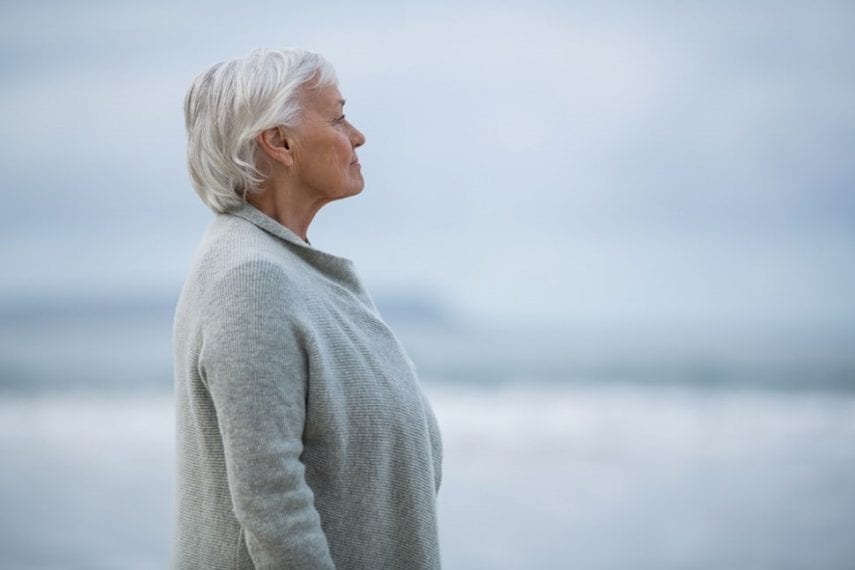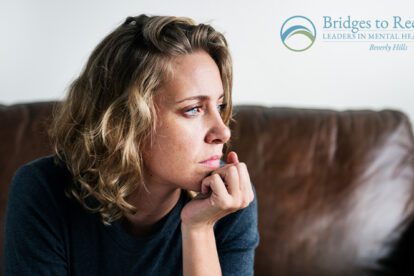Do I Have Seasonal Affective Disorder or Depression? Getting Help During the Holidays

Different types of mood disorders may require unique treatment options for effective recovery. Understanding the differences between seasonal affective disorder, major depression, and other depressive disorders is an important start. But clinical diagnosis is necessary to unlock the door to the best possible treatment options for you.
For many birds, heading south for the winter is a very real survival instinct to escape the unforgiving weather. For people with seasonal affective disorder, heading south for the winter could be a figurative way of describing their low moods, low energy, difficulty waking up, and other heavy symptoms. Fortunately, the treatment for SAD is much more accessible than the birds’ solution to the cold temperatures and the low light of winter.
But first, you need to be able to answer the question: “Do I have seasonal affective disorder or depression, or another mental health disorder?” The underlying condition can be difficult to identify, and it’s important to be sure before moving forward in recovery. Whether it is SAD or major depressive disorder, it is entirely possible to see great improvement with proven treatment options and the help of compassionate clinicians. Treatment could be the most important gift of this holiday season to prepare you for a resilient new year.
What’s the Difference? Do I Have Seasonal Affective Disorder or Depression?
Depressive disorders are a broad category. The types of depression are generally distinguished by the cause, the symptoms, and the treatments—although, of course, there may be some overlaps among the various types. Hence, it is often too hasty to make assumptions about what version of depression someone is experiencing or to simply say that they are suffering from depression.
Seasonal affective disorder is one type of depression, along with bipolar depression, situational depression, and postpartum depression, among others. In all cases of depressive symptoms, a clinical diagnosis is necessary to determine what disorder is present, if there are any co-occurring disorders at work, and what is the best course of treatment moving forward.
Let’s look at some of the potential differences that distinguish major depression and seasonal affective disorder:
| Major Depression | Seasonal Affective Disorder |
|
|
|
|
|
|
|
|
Call for a Free Confidential Assessment.
877-727-4343What Are the Best Treatment Options for SAD and Major Depression?
Without compassionate intervention and effective treatment, depressive disorders will likely progress. The risks of putting off diagnosis and treatment for depression can include:
- Self-medication and substance abuse
- Self-harm
- Suicidal thoughts and actions
- Other self-destructive behaviors
- Psychotic episodes
- Interpersonal conflicts and relationship troubles
- Isolation
- Problems with work
- Aggravation of other mental health conditions
- Physical pain
- Illness
Treatment is not challenging to find—even during the holidays—but you do want to look for a program that offers comprehensive options to help improve your life as a whole. The process will begin with a careful assessment of your symptoms, your family history, and any medical conditions to determine an accurate diagnosis. Your personal goals will also be considered in order to design an optimal treatment plan.
The best treatment for seasonal affective disorder or another depressive disorder will work to alleviate symptoms, but it will also address any underlying factors and co-occurring disorders. Treatment for depressive disorders generally comprises a combination of psychotherapy approaches, medication, physical fitness, and alternative and holistic therapies. Light therapy can also be helpful to balance hormones and daily rhythms, especially for seasonal affective disorder. Clinicians will design treatment plans on an individual basis and monitor a client’s progress, adjusting treatments as necessary to ensure the best possible recovery path.
Just as important—the clinicians’ goal through treatment is to empower clients. So, not only do clients experience relief from depressive symptoms, but they also step into their future with confidence that they are not alone and that they have the skills and resources necessary to live a vibrant life.
Bridges to Recovery offers comprehensive treatment for people struggling with mental health disorders as well as process addictions. Contact us to learn more about our renowned Los Angeles programs and how we can help you or your loved one start on the path to healing.






